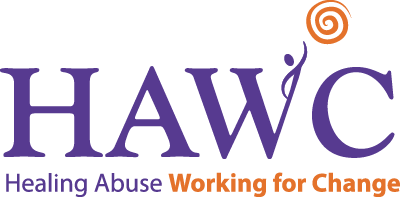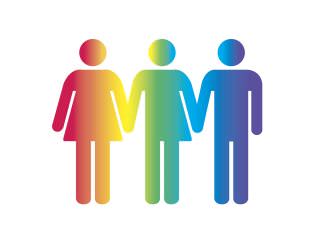Recognizing abuse in relationships with lesbian, gay, bisexual, transgender, queer, or questioning (LGBTQ+) individuals can be challenging because of common misconceptions about gender roles and abuse. In fact, approximately one in three LGBTQ+ relationships experience domestic abuse.
For bisexual, pansexual, or polysexual people—people whose sexuality falls outside of the homosexual/heterosexual binary—rates of intimate partner violence are even higher. According to the Center for Disease Control (CDC) almost 75% of bisexual women have experienced sexual and/or domestic abuse.
In many cases, stigmas and stereotypes around bisexuality help fuel or excuse abuse. Society fosters extreme biphobia, encouraging people to view bisexual people as insatiably sexual, fickle, and untrustworthy. Perpetrators of abuse find themselves unable to identify with or understand the reality that some people can be attracted to more than one gender, and as a result perceive bisexual people as either incapable of “picking one or the other” or willing to partake in any sexual activity that will garner attention. These misconceptions center around the idea that bisexual people are not the owners of their own bodies and desires, and as such, they must be controlled.
This is not only incorrect; it is degrading and can seriously injure or traumatize someone. Turning bisexual, pansexual, and polysexual people into “hypersexual” beings allows partners to use “jealousy” as an excuse for abusive behavior. In fact, when actress Amber Heard, who identifies as bisexual, accused her husband, Johnny Depp, of violent abuse, the media pardoned Depp, saying that “threats of infidelity” warranted action. This misconception also leads people to assume that bisexual, pansexual, and polysexual people are always romantically and sexually available and wanting to engage in any and all sexual activity, erasing consent from the equation.
Finally, the belief that bisexual, pansexual, and polysexual people are just “unsure” or “experimenting” and will eventually “pick a side” erases a valid identity, resulting in low self-esteem and self-worth in some cases. Because abusers tend to target emotionally vulnerable people, this pervasive societal mentality that can result in depression, anxiety, and traumatic stress may also contribute to the high numbers of bisexual, pansexual, and polysexual people experiencing abuse.
If you or someone you know identifies as bisexual, pansexual, or polysexual—or any other sexual identity that falls outside of the homosexual/heterosexual binary—be wary of partners who criticize your queer identity, isolate you from your same sex friends or from a group of friends who are opposite your gender, or threaten to out you to your friends or family. Knowing what red flags to look out for can make the difference in living a life free from violence and fear.
Remember that your identity is valid. How you feel is real, important, and deserving of respect. Do not be afraid to express yourself and stand up for who you are. If you are not LGBTQ+ but have friends who are, help them by fighting these stigmas and stereotypes when they appear in everyday conversation, on television, or at the workplace. Everyone is deserving of dignity and respect, regardless of sexual orientation, gender expression, or gender identity. To learn more about domestic abuse in the LGBTQ+ community, click here.


